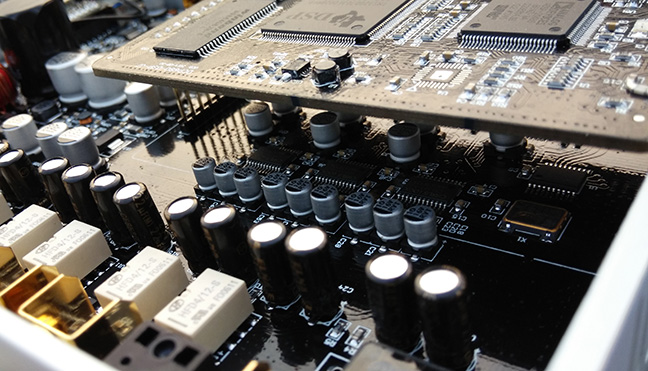Exploring TI DSP Solutions: A Deep Dive into Audio Excellence
 Digital Signal Processors (DSPs) are essential components in modern electronic systems, playing irreplaceable roles in audio processing, communication systems, automotive electronics, and industrial control. Texas Instruments (TI), a global leader in DSP technology, has over 40 years of development history and currently holds approximately 31% of the global market share.
Digital Signal Processors (DSPs) are essential components in modern electronic systems, playing irreplaceable roles in audio processing, communication systems, automotive electronics, and industrial control. Texas Instruments (TI), a global leader in DSP technology, has over 40 years of development history and currently holds approximately 31% of the global market share.
As the pioneer and leader in DSP technology, Texas Instruments has been driving the development of this field since it launched its first DSP chip, the TMS32010, in 1982. According to the latest market report from QYResearch, TI currently holds about 31% of the global DSP chip market, significantly surpassing competitors such as Analog Devices (ADI) and NXP. This market leadership stems from TI's continuous technological innovation and comprehensive product portfolio, which can meet the needs of various application scenarios ranging from low-power portable devices to high-performance computing.
TI's Popular DSP Chip Series and Representative Models
Equipped with dedicated hardware accelerators and high real-time cores, TI's DSP chips can complete multi-channel forward filtering with extremely low latency while optimizing the signal quality of each channel. They cover a wide range of applications from low-end to high-end. Below are the key features of some popular series and their representative models:
Series Name | Representative Model | Key Features |
Sitara Series | AM62D-Q1 | Integrates Arm Cortex-A53 and C7000 DSP cores, with a main frequency of 1.4GHz, supporting rich audio interfaces and network security functions |
C2000 Series | High-performance fixed-point and floating-point DSP core, suitable for motor control and audio processing, supports multiple communication interfaces, ideal for industrial and automotive applications | |
C5000 Series | 200MHz, ultra-low power consumption, McBSP, UHPI, suitable for portable devices, voice recognition, and biometric identification | |
C6000 Series | 350MHz floating-point, 133MHz EMIF, DMA engine, mainly used for audio optimization, active noise cancellation, and multi-channel systems | |
KeyStone Series | Multi-core DSP architecture, suitable for high-performance computing and complex audio processing tasks, widely used in communication and multimedia processing |
Latest Developments in TI DSP Chips
TI's recently launched AM62D-Q1 processor and AM275x-Q1 MCU represent the latest achievements in the field of automotive audio. The AM62D-Q1 processor integrates Arm Cortex-A53 and C7000 DSP cores, with a computing capability of up to 40GFLOPS and a frequency of 1.0GHz. It can easily handle the multi-channel real-time processing requirements of high-end cabins with 16 to 30 speakers. Additionally, the processor integrates a matrix multiplication accelerator (MMA) with a performance of up to 2TOPS and a frequency of 1.0GHz, supporting AI algorithms to further enhance audio processing capabilities. The AM275x-Q1 MCU is known for its high integration and performance, providing rich audio interfaces and system-level connectivity peripherals, and supporting rapid development and flexible configuration. TI also offers comprehensive embedded, analog, and power products and solutions for these chips, as well as customized reference designs, training, and support for end devices, significantly reducing development complexity and system complexity.
Developments from Other Leading Vendors
In addition to TI, other semiconductor vendors are also actively positioning themselves in the DSP chip market. For example, NXP's S32 series processors integrate high-performance DSP cores, suitable for automotive audio and signal processing; Infineon's AURIX series microcontrollers also have strong audio processing capabilities, supporting multiple audio interfaces and safety functions. The competition among these vendors drives continuous innovation and development in DSP chip technology, offering more choices for enhancing audio experiences.
Conclusion
TI's DSP chips, with their high performance, high integration, and powerful audio processing capabilities, hold a significant position in the audio field. The recently launched AM62D-Q1 processor and AM275x-Q1 MCU not only meet the needs of high-end audio systems but also reduce development barriers and accelerate time-to-market through one-stop hardware and software ecosystem support. As technology continues to evolve, TI's DSP chips will continue to lead the innovation in audio experiences, bringing users a more immersive audio enjoyment.
Website: www.conevoelec.com
Email: info@conevoelec.com








